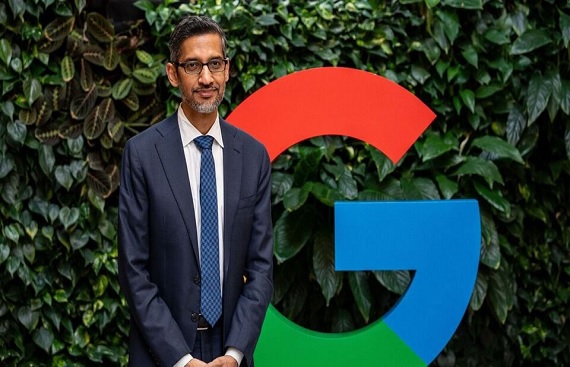Google Reinvents Search with Advanced Generative AI Mode Amid Industry Turmoil
By
siliconindia | Wednesday, 21 May 2025, 09:37 Hrs

- Google has introduced a new AI-powered search mode at its annual developer conference.
- CEO Sundar Pichai said the new mode allows longer, more complex queries and supports follow-up questions.
- The AI mode goes beyond the previous AI Overviews and is currently available in the US.
At its annual developer conference, Google unveiled sweeping advancements to its search engine, introducing a groundbreaking AI-powered search mode that marks a bold reimagining of how users access information online. The move underscores Google’s commitment to generative artificial intelligence, even as concerns mount about its impact on the tech giant’s core advertising business model.
CEO Sundar Pichai, addressing developers at the Google I/O event in Silicon Valley, said the company’s latest innovation was the result of 'decades of research', now culminating in a new AI mode designed to deliver deeper, more conversational, and more contextually aware search experiences.
“New AI mode is a total reimagining of search with more advanced reasoning”, Pichai said. “You can ask longer and more complex queries... and you can go further with follow-up questions”.
The enhanced search functionality builds on the AI Overviews Google rolled out last year, which provided generative summaries above traditional blue links. The new AI mode, however, goes even further using advanced reasoning and multimodal capabilities to pull richer insights from across the web, allowing users to dive deeper into topics with ease.
Liz Reid, head of Google Search, described the new mode as a 'powerful tool' that searches the web far more thoroughly than conventional methods. “This new capability enhances how users discover, engage, and interact with content”, she said.
The new AI-powered search mode has been made available in the United States starting Tuesday, with plans to expand it globally in phases. Pichai highlighted India as a key market, where Google will offer “special pricing” to encourage adoption. Since the debut of AI Overviews, more than 1.5 billion users across multiple countries have engaged with the feature a scale unmatched by any other generative AI product to date.
Despite the technological milestone, analysts and industry insiders are raising red flags about the implications for Google’s ad revenue. Traditionally, Google’s search engine thrives on monetizing clicks through its pages of blue links and featured ads. As AI-generated answers become the first and sometimes only stop for users, the opportunity for advertising impressions significantly diminishes.
This shift has also rattled website publishers, including news organizations and platforms like Wikipedia, which rely heavily on traffic driven by Google’s search links. The new AI model threatens to bypass these gateways, delivering answers without requiring users to click through to source pages.
Fueling investor anxiety, Apple’s Senior Vice President of Services, Eddy Cue, recently testified in a federal antitrust trial that for the first time in over two decades, Google’s search traffic on Apple devices saw a decline this past April. Cue attributed the drop to users turning to generative AI tools like ChatGPT and Perplexity for information instead of Google.
More concerning for Google, Cue suggested that Apple may soon begin offering AI-driven alternatives as default search engines on its devices — a development that could further erode Google’s dominance and advertising revenue. Following his testimony, Google shares dipped sharply, and fears resurfaced that the company may be forced to divest key parts of its business if found guilty of maintaining an illegal search monopoly.
Yet, Google remains undeterred. The conference also showcased an array of experimental AI tools aimed at deepening user engagement, from real-time speech translation and virtual try-ons for clothing to smart shopping tools that monitor prices and suggest optimal buying times.
Also Read More: Unveiling the Dual Realities of Dark Websites in the Digital Age
The company is also integrating AI 'agents' virtual assistants capable of performing tasks autonomously into its Chrome browser and Gemini AI app. These capabilities will initially roll out to subscribers, with broader access anticipated later.
Highlighting the premium edge of its AI portfolio, Google announced the launch of an 'Ultra' subscription tier, which grants access to its most advanced AI tools. Priced at $250 per month, Ultra targets power users and professionals seeking the cutting edge of generative AI capabilities.
“All of this will keep getting better”, said Pichai, reiterating Google’s mission to bring the best of AI to the world. “It’s made the web itself more exciting; people are engaging a lot more across the board”.
As Google pushes forward with its AI-first vision, it finds itself balancing innovation with the complex realities of its foundational business one built on search links, ads, and an internet economy now being rapidly reshaped by artificial intelligence.
